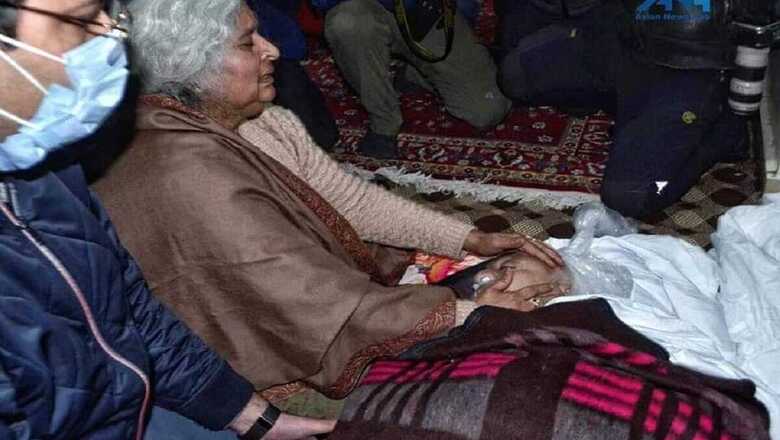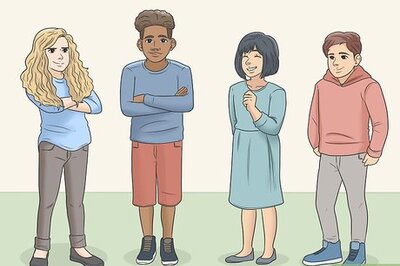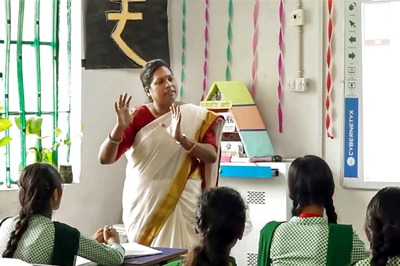
views
On the last day of 2020, even as the nation prepared for New Year festivities, motorcycle-borne terrorists shot dead 65-year-old Satpal Nischal in Srinagar. He was a jeweller who had lived and worked there for more than forty years. What grudge did the terrorists have against him? He was a Punjabi, who had recently availed himself of a domicile certificate after the abrogation of Article 370.
He was an innocent human being. He was an Indian. He is no more. Who bears responsibility for this horrific crime? Well, the terrorists do, of course. But does it stop there? Over the last few years, sections of the intelligentsia have argued that crimes having a political angle should be seen in larger context. They have tried to blame not just the perpetrators of the crime, but the political leanings of large groups of citizens, society itself and even the nation. This is where the campaign about an ‘intolerant’ India comes from. I do not support this approach. However, the least we can ask is that those who take this approach should also apply it to themselves. Otherwise, it is not an intellectually honest position on their part.
In this case, the terrorists who claimed the killing stated explicitly that those who receive domicile certificates in J&K are “occupiers” and “RSS agents” and resolved to eliminate them. Will sections of commentators who have called India an “occupier” in Kashmir take responsibility? Will those who raised terrifying slogans such as “Hindutva ki kabar khudegi” take responsibility?
In the months since August 2019, we have seen certain groups trying to paint the abrogation of Article 370 as some kind of anti-democratic move. The reality is that Article 370 was an apartheid law. And these terrorists have laid bare the xenophobia at the heart of it.
What did Article 370 provide for? Its purpose was to keep “outsiders” away. If they came in, they could remain only in a permanently disenfranchised state. How can Indian citizens be outsiders in their own country? Incidentally, many of those who protested the abrogation of Article 370 were also opposed to the Citizenship Amendment Act. They argued that the Indian state should treat all asylum seekers from Pakistan, Bangladesh and Afghanistan equally, irrespective of their group identities. However, they did not appear to hold the same belief about all citizens of India. How does that work, exactly?
So who could be an “outsider” according to Article 370? Not just people like 65-year-old Satpal Nischal, who came to Kashmir as a young boy. Even the Gorkhas, whose families came to Kashmir in the mid-19th century, were considered outsiders. There are nearly one lakh Gorkhas in Kashmir today. Many of them have served in our armed forces, defending our country. But they were considered outsiders in their place of birth, all because they were Gorkhas. That’s racism.
Members of the Valmiki community, who were invited to Kashmir during a municipal workers strike in 1957, were also considered outsiders. Not just them, but also their children and grandchildren. Even if they had a PhD, they were not allowed to have any job other than that of safai karmachari. This is indentured servitude. You can’t make an excuse for this.
It is relatively well known that Article 370 also enabled the state government to legally discriminate against women. Additionally, the 2018 Supreme Court judgment legalising homosexuality did not apply to Jammu and Kashmir. How does all of this square with the supposed liberalism of those who opposed the abrogation of Article 370?
In both letter and spirit, Article 370 was more similar to old Jim Crow laws in the American south, which provided for segregation between white and black citizens. Ideally, those criticizing the abrogation should belong to the same quarter of history as racist crowds that opposed desegregation in America in the 1950s and 1960s. Instead, in a supreme irony, these critics have been able to claim for themselves the mantle of liberalism.
In the 1860s, the US government tried to abolish slavery. The states which insisted on keeping slavery revolted and civil war followed. A hundred years later, the US government tried to abolish racial segregation between white and black citizens in certain states. Again, the rallying cry of the opposition was “states’ rights.” In 2019 and 2020, the critics of Article 370 abrogation raise an eerily similar slogan. They argue that state governments which insist on discriminatory laws should be allowed to keep them.
In chilling fashion, the terrorists in Srinagar have shown what happens when hatred against “outsiders” is given a free run. It is time for the critics of the abrogation of Article 370 to consider and repent.
The writer is a mathematician, columnist and author. Views expressed are personal.
Read all the Latest News, Breaking News and Coronavirus News here

















Comments
0 comment